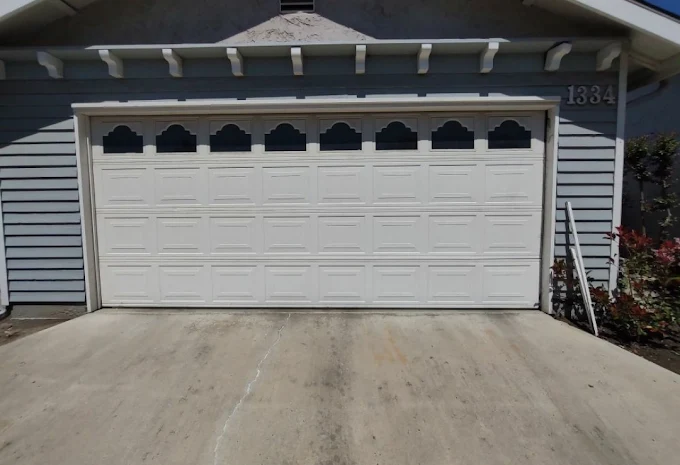Your garage door plays an important role in your home safety, curbing appeal and daily feature. But like any other mechanical system, it has not been there forever. When it starts showing signs of wearing and tear, many household owners face a difficult decision: the existing upgrade or garage door repair to a new.
While repair can expand the life of your current system, replacement can provide better long term value, energy efficiency and security. In this guide, we will help you decide whether you have to fix everything you have or invest in a brand-new garage door.
It makes sense when repairing your garage door
Repair is often the most cost -effective solution when the damage is minor or limited to individual components. There are some landscapes here where the garage door calls a professional for repair is a smart option:
Mild cosmetic damage
Dent, small scratches, or sticky paints do not necessarily require complete replacement. These issues are usually cheap to fix and do not affect the functionality of your door.
Example:
Faded panel
Small dent
Damaged weather stripping place
Remanding component failures
If your garage door still operates well, but has deteriorated in some parts – such as springs, cables, or rollers – repair is a practical option. Changing these components can restore smooth operation without the price of a new door.
Common repairs include:
Broken torsion instead of springs
Fixing Freud Lift Cables
Repair of malfunction sensor
The door is still structurally sound
If the door panels, tracks, and frame are in good condition, repairs can significantly extend its life. In this case, a professional tune-up or minor adjustment may be required.
Signs that your door is still repairable:
No major rust, rot or cracks
Moves smoothly without grinding or stirring
No significant sagging or imbalance
When it’s time to upgrade your garage door
Sometimes, repair is only a temporary solution – and replacement is a smarter, more cost-effective option. Here are clear signs that it’s time to invest in a garage door replacement:
Frequent or expensive repairs
If you find yourself calling for service several times a year, it may be more cost-effective to replace the entire system. Frequent breakdowns indicate that your door components are nearing the end of their lifespan.
Rule of thumb: If the repair cost is more than 50% of the price of a new door, replacement is usually the better option.
Safety or security concerns
Older garage doors may lack modern safety features like auto-reverse sensors, pinch-resistant panels, and advanced locking mechanisms. If safety is a concern – especially for families with children or pets – upgrading is a wise investment.
Upgrade Benefits:
Enhanced Home Security
Better security against burglary
Better protection for daily use

Poor energy efficiency
If your garage is connected to your house, then you may spend money on energy bills at an old, without any door. Modern doors with better insulation help to regulate indoor temperature and reduce heating and cooling costs.
Signs of poor efficiency:
Draft or temperature changes inside the garage
Especially high utility bill
Slipped weather seal
Old design and appearance
Your garage door plays a big role in the curb appeal – in fact, it can calculate up to 30% of the exterior of your house. If your door looks old, worn or old, upgrading can immediately improve your home beauty and resale value.
Benefits of Upgradation:
Property increases price
Carb enhances appeal
Allows optimization in style, material and color
Severe structural damage
If the door is relaxed, rotting, or heavy rust, repair may not be enough to protect and restore the performance. Important structural issues often indicate that the door is beyond its usable life.
General Signs:
Large cracks or perverted panels
Rust or water damage
The door is no longer aligned with the track
Making Smart Choices: Questions to Ask Yourself
Before you decide to repair or replace your garage door, ask yourself the following:
How old is my current garage door? (15+ years usually warrants replacement)
Are repairs becoming more frequent or expensive?
Is the door affecting energy efficiency or safety?
Do I want to upgrade my home’s curb appeal?
If you answered “yes” to two or more of these questions, replacing your garage door may be a smarter investment.
Conclusion
Deciding whether to upgrade or garage door repair depends on the extent of the damage, the age of the system, and your long-term goals. If the issues are minor, a quick repair may be all you need. But if your door is old, inefficient or unsafe, replacing it can result in improved performance, increased security and better curb appeal.
Ultimately, consulting with a professional garage door technician is the best way to evaluate your options and choose the most cost-effective solution for your home.
Frequently Asked Questions (FAQs)
- How long do garage doors usually last?
Most garage doors last 15-30 years depending on use, maintenance and quality of materials. - Can I replace just one panel instead of the entire door?
Yes, if the rest of the door is in good condition. However, matching panel color and style can sometimes be difficult. - Does a new garage door increase home value?
Absolutely. A new door can offer a 90% return on investment and boost curb appeal significantly. - What is the most energy-efficient garage door option?
Insulated steel or composite doors with polyurethane foam insulation provide excellent energy efficiency. - Should I repair my garage door opener separately?
If the opener is still in good condition, you can repair or reuse